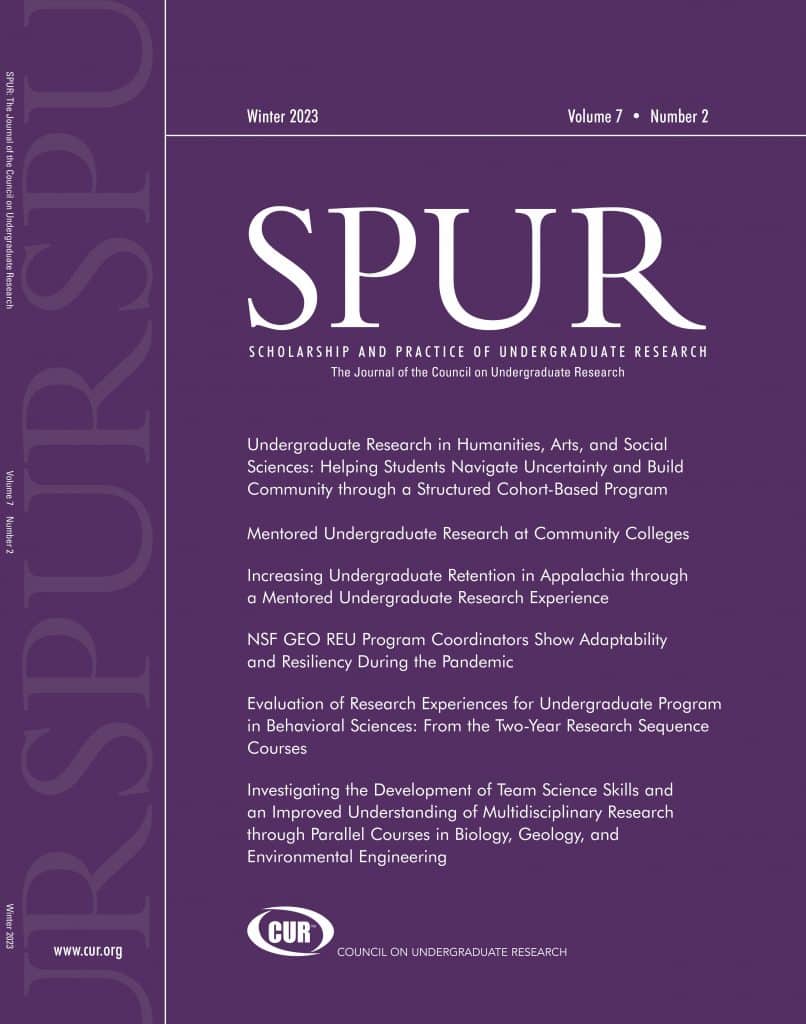SPUR (2024) 7 (2): https://doi.org/10.18833/spur/7/2/6
In this study, the Research Methods Sequence (RMS) courses in the College of Behavioral and Social Sciences at California Baptist University were evaluated. There were two central aims in the study. First, the effectiveness of the RMS courses in developing students’ research skills and perceptions of the research process were assessed. Second, the investigator explored significant factors in the success of research experience in an undergraduate program. It was found that the RMS courses improved students’ proficiency in research-related skills. Students reported gains in thinking and working like a scientist, personal gains related to research work, gains in research skills, and gains in knowledge about and attitude toward research. Furthermore, out-of-course research activities and mentor relationships contributed to the success of the undergraduate research experience.
Recommended Citation: Mun, Sophia. 2023. Evaluation of Research Experiences for Undergraduate Program in Behavioral Sciences: From the Two-Year Research Sequence Courses. Scholarship and Practice of Undergraduate Research 7 (2): 48-52. https://doi.org/10.18833/spur/7/2/6
More Articles in this Issue
No posts found


